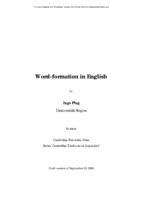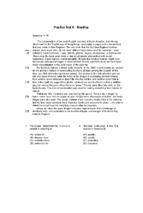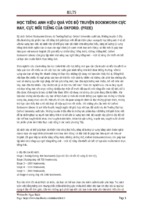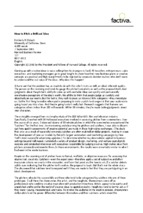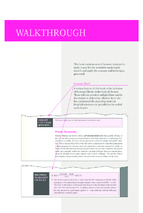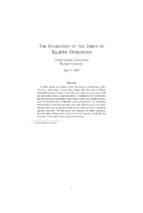www.ebook3000.com
www.ebook3000.com
FREE TRADE AND ITS ENEMIES IN
F R A N C E , 18 14 – 1851
In the aftermath of the French Revolution, advocates of protection
against foreign competition prevailed in a fierce controversy over
international trade. This ground-breaking study is the first to examine this ‘protectionist turn’ in full. Faced with a reaffirmation of mercantile jealousy under the Bourbon Restoration, Benjamin Constant,
Jean-Baptiste Say and regional publicists advocated the adoption of
the liberty of commerce in order to consolidate the new liberal order.
But after the Revolution of 1830 a new generation of liberal thinkers
endeavoured to reconcile the jealousy of trade with the discourse of
commercial society and political liberty. New justifications for protection oscillated between an industrialist reinvention of jealousy
and an aspiration to self-sufficiency as a means of attenuating the rise
of urban pauperism. A strident denunciation of British power and
social imbalances served to defuse the internal tensions of the protectionist discourse and facilitated its dissemination across the French
political spectrum.
DAVID TODD is a Lecturer in World History in the History
Department at King’s College London.
www.ebook3000.com
I deas i n Context
Edited by David Armitage, Richard Bourke,
Jennifer Pitts and John Robertson
The books in this series will discuss the emergence of intellectual traditions and of
related new disciplines. The procedures, aims and vocabularies that were generated
will be set in the context of the alternatives available within the contemporary
frameworks of ideas and institutions. Through detailed studies of the evolution
of such traditions, and their modification by different audiences, it is hoped that
a new picture will form of the development of ideas in their concrete contexts. By
this means, artificial distinctions between the history of philosophy, of the various
sciences, of society and politics, and of literature may be seen to dissolve.
The series is published with the support of the Exxon Foundation.
A list of books in the series will be found at the end of the volume.
www.ebook3000.com
FREE TRADE AND ITS
ENEMIES IN FRANCE,
1814 – 1851
D AV I D TO D D
King’s College London
www.ebook3000.com
University Printing House, Cambridge CB2 8BS, United Kingdom
Cambridge University Press is part of the University of Cambridge.
It furthers the University’s mission by disseminating knowledge in the pursuit of
education, learning and research at the highest international levels of excellence.
www.cambridge.org
Information on this title: www.cambridge.org/9781107036932
© David Todd 2015
This publication is in copyright. Subject to statutory exception
and to the provisions of relevant collective licensing agreements,
no reproduction of any part may take place without the written
permission of Cambridge University Press.
Derives from a book originally published in French as L’Identité économique de la France:
libre-échange et protectionnisme (1814–1851) by Éditions Grasset & Fasquelle,
2008 © Éditions Grasset & Fasquelle, 2008
First published 2015
Printed in the United Kingdom by Clays, St Ives plc
A catalogue record for this publication is available from the British Library
Library of Congress Cataloguing in Publication data
Todd, David, 1978–
[Identité économique de la France. English]
Free trade and its enemies in France, 1814–1851 / David Todd, King’s College London.
pages cm
Translation of the author’s L’identité économique de la France.
Includes bibliographical references and index.
ISBN 978-1-107-03693-2 (hbk.)
1. France–Economic conditions–19th century. 2. France–Commerce–
History–19th century. 3. International trade–19th century. I. Title.
HF3556.T6313 2015
382′.71094409034–dc23
2014045609
ISBN 978-1-107-03693-2 Hardback
Cambridge University Press has no responsibility for the persistence or accuracy of
URLs for external or third-party internet websites referred to in this publication,
and does not guarantee that any content on such websites is, or will remain,
accurate or appropriate.
www.ebook3000.com
Contents
Acknowledgements page vi
List of abbreviations
ix
Introduction
1
1 The reactionary political economy of the Bourbon Restoration
20
2 Economists, winegrowers and the dissemination of
commercial liberalism
55
3 Completing the Revolution: political and commercial
liberty after 1830
89
4 Inventing economic nationalism
123
5 The contours of the national economy
155
6 The Englishness of free trade and the consolidation of
protectionist dominance
190
Conclusion
229
Bibliography
Index
238
267
v
www.ebook3000.com
Acknowledgements
Free Trade and its Enemies in France, 1814–1851 is an extensively revised
version of a book published in French, L’Identité économique de la France,
1814–1851 (Paris: Éditions Bernard Grasset, 2008). Most of the material
under consideration in the French and English versions is the same. But
while the French book was chiefly intended as a contribution to the social
history of ideas and mentalités, the English version primarily engages
with the more vibrant field, in the English-speaking world, of intellectual
history. Both versions are equally committed to the promotion of what
I believe can be a fruitful dialogue between historians of ideas and economic historians.
I am very grateful to David Armitage for encouraging me to write this
English version and for his insightful comments on various aspects of the
project. I also wish to thank Elizabeth Friend-Smith for her editorial work
at Cambridge University Press, and Christophe Bataille and Patrick Weil,
general editor and series editor at Éditions Bernard Grasset, for their support with the completion of the earlier French version.
By far the largest of my intellectual debts goes to Emma Rothschild,
who supervised the PhD thesis on which this book is based. Her vision
of what intellectual and economic history should seek to achieve has
been a constant source of inspiration. Her suggestions and comments
have helped to fashion a great many specific aspects as well as the broader
thrust of the book.
Several conversations with the late François Crouzet helped to awaken
my curiosity in divergent British and French attitudes towards free
trade. I am grateful to the examiners of the thesis, Pierre Rosanvallon
and Robert Tombs, who made many useful suggestions on the significance of protectionism for nineteenth-century French political culture.
The book also owes a great deal to the comments of three anonymous
referees, in particular a constructive critic of the relationship between
vi
www.ebook3000.com
Acknowledgements
vii
eighteenth- and nineteenth-century French debates about commerce by
‘Reader A’.
Additional thanks are due to many members of my family, friends and
colleagues, for numerous stimulating discussions and answers to specific
queries. A far from exhaustive list includes Sunil Amrith, Christopher
Bayly, Fabrice Bensimon, Hélène Blais, Angus Burgin, Edward Castleton,
Christophe Charle, Carole Christen, Christopher Clark, Guillaume
Daudin, Martin Daunton, Nicolas Delalande, Quentin Deluermoz,
Richard Drayton, Michael Drolet, Olivier Dufau, Marcel Gauchet,
Perry Gauci, Boyd Hilton, Jean-Pierre Hirsch, Étienne Hofmann, Istvan
Hont, Julian Hoppit, Jeff Horn, Antony Howe, Lynn Hunt, Joanna Ines,
Maurizio Isabella, François Jarrige, Colin Jones, Shruti Kapila, Laure
Kodratoff, Fabien Knittel, Michael Kwass, Michael Ledger-Lomas, Claire
Lemercier, Georges Liébert, Dominique Margairaz, Philippe Minard,
Renaud Morieux, William O’Reilly, William Nelson, Gabriel Paquette,
Jennifer Pitts, Pedro Ramos Pinto, Paul Readman, Pernille Røge,
François-Joseph Ruggiu, Florian Schui, Pierre Singaravélou, John Shovlin,
Michael Sonenscher, Gareth Stedman Jones, Frank Trentmann, Nicolas
Todd, Richard Tuck, François Vatin and Julien Vincent.
As one of the book’s themes is the attention to the material context that
permitted the formulation and dissemination of certain ideas, I am very
glad to have an opportunity to thank the institutions that provided me
with financial support at various stages of the making of this book: the
British Council, Trinity College (Cambridge), Trinity Hall, the Centre
for History and Economics, the Andrew W. Mellon Foundation, King’s
College London and the Philip Leverhulme Trust. I also wish to express
my gratitude for the assistance, patience and kindness of the staff of
numerous libraries, archives and research centres. Special thanks are due to
Martine Hilaire, at the Section du XIXe siècle of the Archives Nationales,
and to Inga Huld Markan, the executive officer at the Centre for History
and Economics in Cambridge.
I am grateful to Lord Clarendon and the Chambre de Commerce et
d’Industrie de Mulhouse for their permission to cite material from, respectively, the Clarendon Papers at the Bodleian Library (Oxford) and the
archives of the Mulhouse Chamber of Commerce at the Centre Rhénan
d’Archives et de Recherches Economique (Mulhouse). Parts of Chapters 3
and 4 draw from the first section of my article, ‘John Bowring and the
Global Dissemination of Free Trade’, already published by Cambridge
University Press in the Historical Journal, 51 (2) (2008): 373–97.
www.ebook3000.com
viii
Acknowledgements
Translations of quotations from texts in French are my own, although
I have consulted and often followed existing published translations.
French words and phrases in quotations from texts in English have not
been translated. Unless otherwise stated, emphases in quotations are
original.
By communicating his enthusiasm about life and making sure that
I could never oversleep in the morning, my two-year-old son, Joseph,
has contributed in his own way to the completion of the manuscript,
although not as much as his mother, Victoria, to whom this book is
dedicated.
Abbreviations
AASMP
Archives de l’Académie des Sciences Morales et Politiques
ACCM
Archives de la Chambre de Commerce de Mulhouse
ADBR
Archives Départementales du Bas-Rhin
ADCO
Archives Départementales de la Côte d’Or
ADG
Archives Départementales de la Gironde
ADM
Archives Départementales de la Moselle
ADN
Archives Départementales du Nord
ADTN
Association pour la Défense du Travail National
ALE
Association pour la Liberté des Echanges
AMB
Archives Municipales de Bordeaux
AMM
Archives Municipales de Mulhouse
AN
Archives Nationales
AP
Archives parlementaires
ASIM
Archives de la Société Industrielle de Mulhouse
AUP Auckland Papers
BJL
Brynmore Jones Library, University of Hull
BL
British Library
BMB
Bibliothèque Municipale de Bordeaux
BNF
Bibliothèque Nationale de France
BODL
Bodleian Library, University of Oxford
CERARE Centre Rhénan d’Archives et de Recherches Economiques
CICE
Comité des Industries Cotonières de l’Est
MS Clar.
Clarendon Papers
NAF
Nouvelles Acquisitions Françaises
SR
Stadtarchiv Reutlingen
TNA
The National Archives
ix
Introduction
The impact of commerce on international and domestic politics emerged
as a major concern of European thinkers and statesmen in the context
of ‘archaic globalization’, a process powered by an increase in the intercontinental exchange of commodities between 1600 and 1800.1 After the
Napoleonic wars, British hegemony aided and abetted an unprecedented
acceleration in the growth of international trade, marking the onset of
‘modern globalization’.2 As a result, the controversy on commerce not
only increased in intensity but also changed in nature. First, between the
1820s and the 1840s, Britain became the first European country to dismantle its arsenal of mercantilist restrictions. It also began to use its naval
and economic clout to promote the lowering of trade barriers throughout
the world. The absolute freedom of trade, still dismissed as ‘an Oceana or
Utopia’ by Adam Smith in 1776, now appeared as a concrete possibility,
although one tinged with fear that it might entrench British supremacy.3
Second, the growing industrial specialization of Europe resulting from the
acceleration of international trade had unforeseen and troubling social
consequences, especially the spread of a new form of urban poverty exemplified by the destitution of British factory workers.4 The controversy on
commerce became a debate over British poverty as well as British power,
and, outside Britain, the means of escaping both. It was to denote the
intensification of the concern with commerce and the emergence of new
sets of beliefs that terms such as ‘free trade’, libre-échange and Freihandel
1 Christopher A. Bayly, ‘“Archaic” and “Modern” Globalization in the Eurasian and African Arena,
c. 1750–1850’, in Anthony G. Hopkins (ed.), Globalization in World History (London, 2002), pp. 47–73;
on early modern debates about archaic globalization, see Istvan Hont, The Jealousy of Trade: International
Competition and the Nation-State in Historical Perspective (Cambridge, Mass., 2005).
2 On nineteenth-century globalization, see Christopher A. Bayly, The Birth of the Modern World,
1780–1914: Global Connections and Comparisons (Oxford, 2004) and Jürgen Osterhammel, The
Transformation of the World: A Global History of the Nineteenth Century, trans. Patrick Camiller
(Princeton, NJ, 2014).
3 Adam Smith, The Wealth of Nations: Books IV–V, ed. Andrew Skinner (London, 1999), p. 48.
4
Gareth Stedman Jones, An End to Poverty? A Historical Debate (London, 2004), esp. pp. 133–62.
1
2
Free Trade and its Enemies in France, 1814−1851
or ‘protectionism’, protectionnisme and Protektionismus were forged in the
early decades of the nineteenth century.
I
The book retraces the beginnings of this controversy on modern globalization and the rejection of ‘British’ free trade in France, from the fall of
the first Napoleonic Empire in 1814–15 until the advent of the second in
1851. Intellectual arguments for free trade dated back to the second half
of the eighteenth century and were not exclusively British. Rather, they
were elaborated by French (François Quesnay, Turgot, Abbé Raynal) and
Scottish (David Hume, Adam Smith) Enlightenment philosophers.5 The
single most influential text calling for the constitution of a global market
was probably Raynal’s Histoire des deux Indes, a European best-seller which
went through fifty French-language editions and countless translations
between 1772 and 1790.6 Yet, after 1815, it was in Britain that free trade
gradually became a dominant ideology and official policy, a transformation often symbolized by the successful campaign of the Anti-Corn Law
League for the repeal of agricultural protection in the 1840s. Historians
have shown that the British enthusiasm for free trade was not only rooted
in the persuasive powers of classical political economy but owed at least
as much to a complex set of moral, religious and geopolitical considerations.7 It proved an enduring feature of British intellectual and political
life, lasting at least until the Edwardian era.8
5 Emma Rothschild, Economic Sentiments: Adam Smith, Condorcet, and the Enlightenment
(Cambridge, Mass., 2001); on liberal ideas about trade in eighteenth-century France, see also
Catherine Larrère, L’Invention de l’économie au XVIIIe siècle: du droit naturel à la physiocratie (Paris,
1992) and Simone Meyssonnier, La Balance et l’horloge: la genèse de la pensée libérale en France au
XVIIIe siècle (Paris, 1989).
6
Anthony Strugnell, Andrew Brown, Cecil Courtney et al., ‘Introduction générale’, in
Guillaume-Thomas Raynal, Histoire philosophique et politique des établissements et du commerce
des Européens, Tome 1: livres I à V, ed. Anthony Strugnell, Andrew Brown, Cecil Courtney et al.
(Paris, 2010), pp. xxvii–lii; Robert Darnton, The Forbidden Best-Sellers of Pre-Revolutionary France
(New York, 1996), p. 63.
7
Boyd Hilton, Corn, Cash and Commerce: The Economic Policies of the Tory Governments, 1815–1830
(Oxford, 1977) and The Age of Atonement: The Influence of Evangelicalism on Social and Economic
Thought (Oxford, 1988); on the entanglement of economic with political and moral concerns in
nineteenth-century British political economy, see Donald Winch, Riches and Poverty: An Intellectual
History of Political Economy in Britain, 1750–1834 (Cambridge, 1996) and Wealth and Life: Essays on
the Intellectual History of Political Economy in Britain, 1848–1914 (Cambridge, 2009).
8 Anthony Howe, Free Trade and Liberal England (Oxford, 1997) and ‘Free Trade and Global
Order: The Rise and Fall of a Victorian Vision’, in Duncan Bell (ed.), Victorian Visions of Global
Order (Cambridge, 2007), pp. 26–46; Lars Magnusson, The Tradition of Free Trade (London, 2004),
esp. pp. 46–69; Frank Trentmann, Free Trade Nation: Commerce, Consumption and Civil Society in
Modern Britain (Oxford, 2008).
Introduction
3
Semantic and linguistic innovations marked the novelty and Britishness of
free trade as an ideology. Whereas in English ‘free trade’ previously referred
to a specific ‘trade or business which may be pursued without restrictions’
as in ‘a free trade in corn’, in the 1820s it acquired the more general sense of
‘trade or commerce conducted without the interference of customs duties
designed to restrict imports’ from the rest of the world, as in ‘a system of free
trade’.9 For example, in an entry of his Rural Rides dated November 1825,
William Cobbett, the conservative turned radical critic of industrialization,
derided ‘this new project of “free trade” and “mutual gain” ’ as ‘humbug’.10 In
the 1830s and 1840s, this new meaning of ‘free trade’ inspired the forging of
neologisms in foreign languages, such as libre-échange in French. Searching
Google Books, I found no occurrence of ‘libre échange’ in reference to the
circulation of commodities in French-language publications before 1829 and
six occurrences between 1830 and 1833, four of which appear in translations
of English writings.11 It was Frédéric Bastiat, an avid reader of British periodicals and admirer of the Anti-Corn Law League, who gave a hyphenated
version of the expression wider currency when he launched the newspaper Le
Libre-échange in 1846. Freihandel was also calqued from English into German
at the same period.12
While nineteenth-century free trade was British, France soon came
to embody its ‘other’, protectionism. The earliest occurrence of ‘protectionist’ I could identify in existing databases was part of a speech delivered on 5 June 1834 by the Hull MP and free-trader, Thomas Perronet
Thompson, on the reciprocity of shipping duties between Britain and
France.13 The speech alluded to the extreme agitation of French public
opinion over trade policy, and it is noteworthy that Thompson was at the
9 ‘Free trade’, Oxford English Dictionary, 3rd edn, June 2007 (www.oed.com, accessed 19
March 2014).
10 William Cobbett, Rural Rides, 3rd edn, 2 vols. (London, 1885), vol. i, pp. 400–3.
11 Search for ‘libre échange’, 1820–1833, in Google Books, works in French (http://books.google.fr,
accessed 19 March 2014). The four translations were: James S. Buckingham, Discours préliminaire
prononcé à l’Athénée à l’occasion d’un cours sur les Indes orientales, trans. Benjamin Laroche (Paris,
1830), p. 40; ‘Note sur l’agriculture de la France’, translated from the Morning Chronicle, in Journal
d’Agriculture et des Manufactures des Pays-Bas, 12 (1830): 212–17, at p. 213; ‘Progrès constitutionnels
de la Prusse’, translated from Blackwoods, in Revue Britannique, 3rd series, 4 (1833): 193–214, at
p. 205; and ‘De la fabrication et du commerce des soieries en France et en Angleterre’, translated
from the Westminster Review, in Revue Britannique, 3rd series, 6 (1833): 53–76, at p. 72. The other
two occurrences were in two Saint-Simonian publications: L’Européen, Journal des Sciences Morales
et Économiques, 1 (1830), p. 66, and Emile Barrault (ed.), Religion saint-simonienne: recueil des prédications, 2 vols (Paris, 1832), vol. ii, p. 7.
12
Lutz Mackensen (ed.), Ursprung der Wörter (Wiesbaden, 1998), p. 140; and Friedrich Kluge (ed.),
Etymologisches Wörterbuch der deutschen Sprache (Berlin, 1967), p. 217.
13 For Thompson, ‘to attempt to play the protectionist or prohibitionist in places where we had no
power, appeared to him an impossibility, not to say an absurdity’, quoted in The Times, 6 June 1834.
4
Free Trade and its Enemies in France, 1814−1851
time in close correspondence with John Bowring, who was engaged in
a campaign to reduce the influence of the ‘anti-free-traders’ in France.14
Yet the word only took hold in English in the 1840s. After the account of
Thompson’s speech in 1834, the next two occurrences of ‘protectionist’ in
The Times date from 1843, followed by five occurrences in 1844 and fifteen
in 1845.15 These occurrences mostly referred to the British supporters of
the Corn Laws, who founded the Society for the Protection of Agriculture
in February 1844.16 A letter from Lord Fitzwilliam, a Whig politician,
to George Pryme, Professor of Political Economy at Cambridge, dated
28 February 1844, stressed the term’s novelty: ‘I am glad to see that you
have been giving your mind to the protectionists, as they are now called.’17
In France, opponents of free trade after 1830 preferred to style themselves
the defenders of travail national (national labour) or of the système protecteur (protective system). Protectionnisme and its derivatives in French
were probably imported from English. The earliest occurrence of protectionniste I could identify, in a work extolling the Anti-Corn Law League’s
crusade for free trade published in 1845 by Bastiat, also referred to British
defenders of the Corn Laws.18 Protectionnisme retained a pejorative connotation and was not widely used until the end of the century. Similarly,
Protektionismus was introduced in German in the 1840s, but it only gained
wide currency in the 1880s.19
After 1850, and the collapse of support for protection in Britain, France
came to be seen, in Britain and elsewhere, as the incarnation of protectionism. ‘Two systems’, free trade and protection, the American economist and adversary of British free trade, Henry Carey, wrote in 1858, ‘are
before the world … Leader in the advocacy of the first has been, and is,
Great Britain. Leader in the establishment of the second, and most consistent in its maintenance, is France.’20 So ingrained did the perception
of France as the land of protectionism become that in 1876 increases in
the tariffs of the United States and Canada led The Times to exclaim, with
melancholy surprise: ‘It is not the French population alone or chiefly
14 Thomas Perronet Thompson to John Bowring, 28 October 1834, Hull, Brynmore Jones Library
(hereafter BJL), Thompson MSS, 4/5.
15 Search for ‘protectionist’, 1830–45, in The Times Digital Archive, 1785–2008 (http://gale.cengage
.co.uk/times.aspx, accessed 19 March 2014).
16 On the defence of the Corn Laws, see Anna Gambles, Protection and Politics: Conservative Economic
Discourse (London, 1999), esp. pp. 56–85.
17 George Pryme, Autobiographic Recollections, ed. Alicia Bayne (Cambridge, 1870), p. 306.
18
Frédéric Bastiat, Cobden et la ligue (Paris, 1845), p. 394.
19 Wolfgang Pfeifer (ed.), Etymologisches Wörterbuch des Deutschen, 2 vols. (Berlin, 1993), vol. ii, p. 57.
20 Henry Carey, Letters to the President on the Foreign and Domestic Policy of the Union (Philadelphia,
Pa., 1858), p. 133.
Introduction
5
which is protectionist.’21 At the turn of the twentieth century, Germany
sometimes rivaled France as Britain’s economic other and symbol of protectionist policies.22 But the image of France as intrinsically hostile to free
trade has remained influential to this day. The Economist, a periodical
which has consistently advocated free trade since its foundation in 1843,
still lambasts the protectionism of ‘Fortress France’ as fervently as in the
nineteenth century.23
The coinage of new words or phrases tends to mark ideological crystallization rather than intellectual innovation. Free trade and protectionism, or libre-échange and travail national, were not coherent doctrines, but
slogans. Yet their very nature of slogan, evoking a variety of economic,
political and moral considerations, makes them useful keys to interrogate contemporary ideas about the early stage of what is now construed as
nineteenth-century globalization. Adopting a simultaneously comparative
and connective perspective, the book examines the reception, attempts at
reinterpretation and eventual rejection of British free trade in France. As
such, it is a contribution to both the history of the transformations of liberalism in France after 1815 and to a transnational history of political and
economic ideas.
II
The book analyses the elaboration and dissemination of a politico-economic
discourse that was neither hostile to capitalism nor political liberalism,
but rejected the cosmopolitan project of a global market as destructive
of social stability as well as national independence. Although the premises of this discourse can be found in the attacks of counter-revolutionary
thinkers on the political economy of the Physiocrats and Adam Smith
before 1820, it was the adoption of free trade by Britain and the fear of
British-style pauperism that led a majority of French liberals to endorse
the protection of ‘national labour’ and stress its compatibility with market economics and representative institutions. In the 1840s, just as free
trade achieved ascendancy in Britain, it was relegated to the margins of
French intellectual and political life. The national political economy of
21 The Times, 22 January 1876, quoted in Henry Carey, Commerce, Christianity and Civilization versus
British Free Trade (Philadelphia, Pa., 1876), pp. 3–4.
22 Trentmann, Free Trade Nation, pp. 93–100.
23 Compare, for instance, ‘Protectionism in France’, The Economist, 26 May 1894, with ‘Protectionism
in France: Fair Is Foul’, The Economist, 26 June 1993, or ‘French Protectionism: Fearful Fortress
France’, The Economist, 29 October 2005.
6
Free Trade and its Enemies in France, 1814−1851
the French protectionists drove an enduring wedge between French liberalism and classical economics and contributed to the divergence between
French and British liberalism after 1830.
The outcome of the controversy on international trade in France can
only appear predictable with the benefit of hindsight. Before the early
nineteenth century, France was home to a vibrant and influential tradition
of laissez-faire ideas. Under the influence of Physiocratic thinkers, the
Bourbon monarchy proved keen to introduce free-market reforms in the
grain and colonial trades.24 The treaty that liberalized exchanges between
Britain and France in 1786 resulted from a French initiative.25 Until the
1790s, Adam Smith, often viewed as a successor of Quesnay and Turgot,
was widely praised or disparaged, throughout Europe, as an advocate of
‘French’ ideas of political and economic liberty.26 In France, The Wealth of
Nations went through four translations and ten editions by 1802.27 In the
early years of Napoleon Bonaparte’s rule, French debates about Smith set
advocates of different interpretations against one another rather than his
followers against his opponents.28
Only the imperatives of economic warfare against Britain, with the
advent of the Continental Blockade, temporarily silenced advocates of a
liberal trade policy after 1805. The first three chapters of this book highlight the resurgence of support for a radical conception of economic
liberty after the fall of Napoleon. In Chapter 1, I examine how the reactionary political economy of the Bourbon Restoration revived liberal
24 On economic reforms in France after the Seven Years’ War, see Steven L. Kaplan, Bread, Politics
and Political Economy in the Reign of Louis XV, 2 vols. (The Hague, 1976), esp. vol. i, pp. 97–163;
Jean Tarrade, Le Commerce colonial de la France à la fin de l’Ancien Régime: l’évolution du régime
de ‘l’exclusif ’ de 1763 à 1789, 2 vols. (Paris, 1972), esp. vol. i, pp. 167–285; on Physiocracy, see
Liana Vardi, The Physiocrats and the World of Enlightenment (Cambridge, 2012) and Pernille Røge,
‘Political Economy and the Reinvention of France’s Colonial System, 1756–1802’ (unpublished
Ph.D. thesis, University of Cambridge, 2010).
25 Orville T. Murphy, ‘Du Pont de Nemours and the Anglo-French Commercial Treaty of 1786’,
Economic History Review, new series, 19 (3) (1966): 569–80; and Marie Donaghay, ‘Exchange of
Products of the Soil and Industrial Goods in the Anglo-French Commercial Treaty of 1786’, Journal
of European Economic History, 19 (2) (1990): 377–401.
26 Emma Rothschild, ‘Political Economy’, in Gareth Stedman Jones and Gregory Claeys (eds.),
The Cambridge History of Nineteenth-Century Political Thought (Cambridge, 2011), pp. 748–79, at
pp. 751–3; and Rothschild, Economic Sentiments, pp. 52–71.
27 Kenneth Carpenter, The Dissemination of the Wealth of Nations in French and in France, 1776–1843
(New York, 2002), pp. xxi–lxiii; on the popularity of Smithian political economy in France in
the 1790s, see also Gilbert Faccarello and Philippe Steiner (eds.), La Pensée économique pendant
la Révolution française, 1789–1799 (Grenoble, 1990); and James Livesey, ‘Agrarian Ideology and
Commercial Republicanism in the French Revolution’, Past and Present, 157 (1997): 94–121.
28 Richard Whatmore, Republicanism and the French Revolution: An Intellectual History of Jean-Baptiste
Say’s Political Economy (Oxford, 2000), pp. 171–3.
Introduction
7
frustrations about commercial prohibitions and the regulation of colonial
trade. Chapter 2 considers the emergence of a militant discourse in favour
of liberté commerciale, an early translation of free trade, in the 1820s, while
Chapter 3 looks at the intensification and dissemination, with the active
encouragement of the British government, of protests for trade liberalization in the wake of the 1830 Revolution.
The endorsement of protection by a majority of liberals after the mid
1830s did not therefore result from a French Colbertian atavism. Historians
of Old Regime France have in any case demonstrated that the legacy of
Jean-Baptiste Colbert was not one of unmitigated interventionism and,
more broadly, that eighteenth-century economic debates were not structured around the opposition between mercantilism and laissez-faire.29
Much more important were the contests between advocates and adversaries of luxury and divergent appreciations of the danger posed by the rapid
growth in the public debt.30 To the extent that contemporaries debated
the implications of ‘archaic globalization’ before the French Revolution,
they can more helpfully be divided between defenders of a moderately
reformist ‘science of commerce’ epitomized by Montesquieu and the supporters of a more radical Physiocratic agrarianism, rather than between
liberals and dirigistes.31 Even for the early decades of the nineteenth century, the modern dualism between liberalism and interventionism fails to
account adequately for the complex and changing views of contemporaries on the international circulation of commodities.32
Yet, by comparison with the abundance of works on British free trade
or even German responses to the later stages of nineteenth-century globalization, historians have paid scant attention to the protectionist turn
of French liberalism after 1830.33 Historians of economic thought pursuing
29 Philippe Minard, État et industrie: la fortune du colbertisme dans la France des lumières (Paris, 1998),
esp. pp. 292–314; see also Jean-Claude Perrot, Une histoire intellectuelle de l’économie politique,
XVIIe–XVIIIe siècles (Paris, 1992).
30 John Shovlin, The Political Economy of Virtue: Luxury, Patriotism, and the Origins of the French
Revolution (Ithaca, NY, 2006); Michael Sonenscher, Before the Deluge: Public Debt, Inequality,
and the Intellectual Origins of the French Revolution (Princeton, NJ, 2007); Anoush F. Terjanian,
Commerce and Its Discontents in Eighteenth-Century French Political Thought (Cambridge, 2013).
31 Paul Cheney, Revolutionary Commerce: Globalization and the French Monarchy (Cambridge, Mass.,
2010), pp. 21, 168–94.
32 William M. Reddy, The Rise of a Market Culture: The Textile Trade and French Society (Cambridge
and Paris, 1984); Jean-Pierre Hirsch, Les Deux rêves du commerce: entreprise et institution dans la
région lilloise (1780–1860) (Paris, 1991); Nicolas Bourguinat, Les Grains du désordre: l’État face aux
violences frumentaires dans la première moitié du XIXe siècle (Paris, 2002), pp. 53–111.
33 Sebastian Conrad, Globalisation and the Nation in Imperial Germany (Cambridge, 2010); Cornelius
Torp, Die Herausforderung der Globalisierung: Wirtschaft und Politik in Deutschland, 1860–1914
(Göttingen, 2005).
8
Free Trade and its Enemies in France, 1814−1851
a doctrinal approach, mainly concerned with the elaboration of modern
economic analysis, have usually dismissed nineteenth-century French
debates as of limited intellectual significance.34 The handful of works
dealing with support for free trade in France have dated its emergence
to the 1840s and attributed it to diffusion from Britain.35 The even scarcer works that have seriously examined the views of French adversaries of free trade tend to describe them in the anachronistic language of
modernization theory and development economics.36 Interest in the
nineteenth-century controversy over free trade in France has also suffered
from the long prevalence of a materialist interpretation, which attributed
the dominance of protectionism to the influence of rent-seeking industries. The multi-volume reference work, Histoire économique et sociale de
la France, edited by Ernest Labrousse and Fernand Braudel, brushed aside
nineteenth-century debates about free trade in four pages, reaching the
conclusion that ‘the pressure of opinion [in favour of protection] did not
rest on a precise ideology’ but ‘merely corresponded to the influence of
dominant interests’.37 This influential view has often confined works on
the French debates over free trade and protection to a history of industrial
lobbying.38
The last three chapters of Free Trade and its Enemies analyse instead
the elaboration, dissemination and triumph of a new anti-free-trade
ideology after 1835. In response to the clamour for free trade, Chapter 4
argues, several liberal publicists invented new justifications for protection
that either stressed the need to meet the British industrial challenge or
called for autarky in order to prevent the spread of British-style pauperism. In Chapter 5, I study the dissemination of this nationalist economist
34 See, for example, Joël Ravix, ‘Le Libre-échange et le protectionnisme en France’, in Yves Breton
and Michel Lutfalla (eds.), L’Économie politique en France au XIXe siècle (Paris, 1991), pp. 485–523;
on the limits of the doctrinal approach, see Winch, Riches and Poverty, esp. pp. 15–16.
35 See, for example, Alex Tyrrell, ‘“La Ligue Française”, the Anti-Corn Law League and the Campaign
for Economic Liberalism in France during the Last Days of the July Monarchy’, in Anthony Howe
and Simon Morgan (eds.), Rethinking Nineteenth-Century Liberalism: Richard Cobden Bicentenary
Essays (Aldershot, 2006), pp. 99–116.
36 Francis Démier, ‘Nation, marché et développement dans la France de la Restauration’ (unpublished doctoral dissertation, University of Paris X, 1991), esp. pp. 2–11; another, older but equally
presentist exception, concerned with tracing the origins of the ‘doctrine of national economics’, is
René Maunier, ‘Les Économistes protectionnistes en France de 1815 à 1848’, Revue Internationale de
Sociologie, 19 (3) (1911): 485–514.
37 Fernand Braudel and Ernest Labrousse (eds.), Histoire économique et sociale de la France, 4 vols.
(Paris, 1977–93), vol. iii.1, pp. 155–9.
38 See, for example, Jürgen Hilsheimer, Interessengruppen und Zollpolitik in Frankreich: die
Auseinandersetzungen um die Aufstellung des Zollstarifs von 1892 (Heidelberg, 1973), and Michael S.
Smith, Tariff Reform in France, 1860–1900: The Politics of Economic Interests (Ithaca, NY, 1980).
- Xem thêm -


